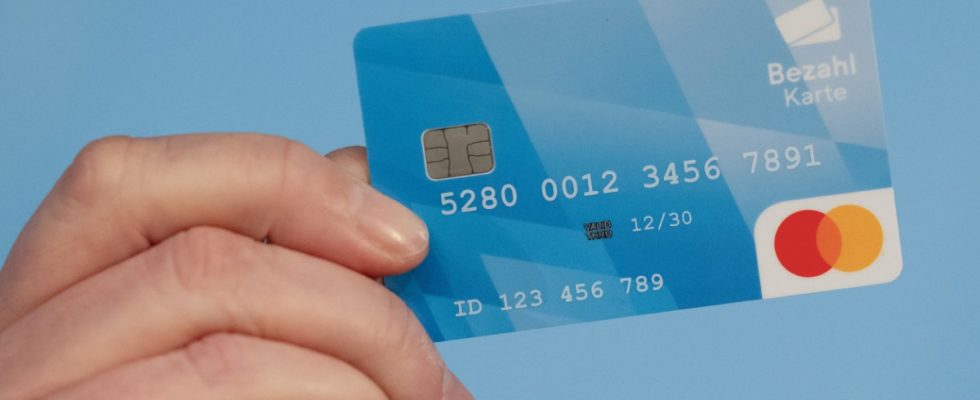The pilot project for the Bavarian payment card for refugees and asylum seekers is being expanded to 15 other municipalities – including large cities such as Augsburg, Passau and the Nürnberger Land district. “By the beginning of May, 15 additional municipalities from all administrative districts will introduce the payment card locally,” said Interior State Secretary Sandro Kirchner in Munich. The payment card will be gradually rolled out in other districts and cities over the next few weeks, and it should be used throughout Bavaria by the end of the second quarter.
Payment cards for asylum seekers and refugees have been available in the districts of Fürstenfeldbruck, Günzburg, Traunstein and the independent city of Straubing since March 21st. Since then, 1,818 activated payment cards have been issued to the four municipalities – initially the number of eligible people was estimated at around 2,800 people.
Kirchner spoke of a very successful test phase. “We are pursuing two goals with the Bavarian payment card: We want to limit irregular migration by reducing incentives to move in, and we want to relieve the burden on our municipalities,” he emphasized. “I am very pleased that the local response has been so positive and that numerous other districts and cities have already asked for the payment card to be introduced as soon as possible.”
According to Kirchner, no significant difficulties have arisen so far. “In practice, everything has been going smoothly so far – it also pays off that our payment card is linked to an existing debit card system and can therefore be used in stores without the need for adjustments on the part of the retailers.”
The payment card can be used to make purchases in all stores that accept Mastercard. Up to 50 euros per person per month can be withdrawn in cash. According to dpa information, a total of almost 600,000 euros have been loaded into the individual credit accounts so far.
The pilot municipalities also draw a positive conclusion. Thomas Karmasin, CSU district administrator of Fürstenfeldbruck and president of the district council, said: “Over 700 payment cards have already been issued in the pilot district of Fürstenfeldbruck. The experiences so far have been positive: the hoped-for administrative simplification has occurred, and paying with the card generally works well.” Markus Pannermayr, CSU mayor of Straubing and chairman of the city council, emphasized that the experiences gained in the pilot municipalities would be valuable for the future nationwide implementation of the map.
The payment card is intended to limit the misuse of services and, as a result, immigration. The amount people are entitled to under the Asylum Seekers Benefits Act, which was previously paid out in cash, is now paid there via the payment card. However, the procedure is controversial. Associations such as the Bavarian Refugee Council doubt that refugees come to Germany because of the cash benefits and transfer significant amounts to their families abroad during their process. The districts of Altötting, Eichstätt, Regensburg, Bamberg, Mühldorf am Inn and Erding, among others, are expected to introduce the card by the beginning of May.

